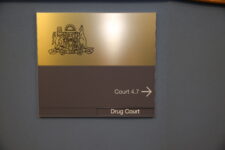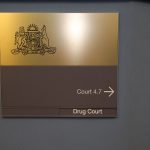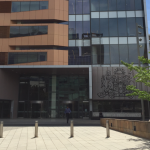What is the Drug Court Program in New South Wales?

Deputy Chief Magistrate Jane Mottley AM will be made a permanent judge of the District Court and will be sworn in as the Senior Judge of the New South Wales Drug Court in the coming weeks.
Deputy Chief Magistrate Mottley brings more than 30 years of legal experience to the Drug Court bench.
Deputy Chief Magistrate Mottley was admitted as a solicitor in 1989, and appointed a Magistrate in the year 2000. She has presided over the Children’s Court, in the Local Courts. She has been an acting judge of the District Court since 2017 while presiding as a judge of the Drug Court.
Expansion of the NSW Drug Court
Deputy Chief Magistrate Mottley replaces Judge Roger Dive, who is retiring next month.
Her appointment also marks a new era for the New South Wales Drug Court, as the State Government announced last month there will be an increase of $27.9 million in funding over the next four years to enable the expansion of the Drug Court into Dubbo, to deal primarily with the region’s crystal methamphetamine, or ‘ice’, epidemic.
About the NSW
The New South Wales Drug Court is a specialist jurisdiction established in 1999 with a view to helping drug-dependent criminal offenders overcome their addictions and stay out of prison.
It operates in the Sydney CBD, Parramatta and the Hunter region and has achieved impressive results: the reoffending rate among participants is 17 per cent lower than for people outside the program.
It is also much more cost-effective than sending people to prison.
Which courts can refer cases to the Drug Court?
The Drug Court accepts referrals from Local Courts at Bankstown, Belmont, Blacktown, Burwood, Campbelltown, Central, Cessnock, Downing Centre in Sydney, Fairfield, Kurri Kurri, Liverpool, Maitland, Mount Druitt, Newcastle, Newtown, Parramatta, Penrith, Raymond Terrace, Toronto, Waverly and Windsor.
It also takes referrals from District Courts and Campbelltown, East Maitland, Newcastle, Parramatta, Penrith and the Downing Centre in Sydney.
What is the Drug Court ballot?
The number of participants for the Drug Court program is limited and, due to the high volume of applicants, ballots are held every Monday at Hunter Drug Court and every Thursday at Parramatta and Sydney Drug Court whereby participants are selected electronically from the pool of applicants.
Applicants can only be placed in the next upcoming ballot – applications do not carry over into future ballots.
This means an applicant who is not selected in the ballot must reapply for future ones.
The results of the ballot are sent to the referring court on the day of the ballot.
How many places are available in the Drug Court program?
There is no set number of places available in the Drug Court program.
Rather, the number of availabilities are determined each week by the Senior Judge in consultation with the court team, taking into consideration the number of participants engaged in the program at that time and the resources available to effect the program.
What details are referred to the Drug Court?
Referring courts are required to provide the following information to the Drug Court in order for the application to be considered in the ballot:
- The date of nomination for the ballot,
- The applicant’s first and last name,
- The applicant’s gender,
- The central names index (CNI) number for the applicant,
- The applicant’s date of birth,
- The applicant’s last known residential address,
- The applicant’s Aboriginal / Torres Strait Islander status,
- The charge number/s for the alleged offence/s (or ‘H number), and
- The referring court and contact name.
The CNI and H numbers are normally entered at the top right of a defendant’s court attendance notice.
Who is eligible for the Drug Court program?
To be eligible for the Drug Court program, an applicant must:
- Be 18 years of age or over,
- Be willing to participate,
- Be dependent on prohibited drugs,
- Have indicated a plea of guilty,
- Be highly likely to be sentenced to fulltime imprisonment if convicted,
- Live in the Local Government Areas of Canterbury-Bankstown, City of Blacktown, City of Campbelltown, City of Cessnock, City of Fairfield, City of Hawkesbury, City of Lake Macquarie, City of Liverpool, City of Maitland, City of Newcastle, City of Parramatta, City of Penrith, City of Sydney, Cumberland, Port Stephens, The Hills Shire;
- Be referred by the Local Court at Bankstown, Belmont, Blacktown, Burwood, Campbelltown, Central, Cessnock, Downing Centre, Fairfield, Kurri Kurri, Liverpool, Maitland, Mount Druitt, Newcastle, Newtown, Parramatta, Penrith, Raymond Terrace, Toronto, Waverly and Windsor, or the District Court at Campbelltown, Parramatta, Penrith, East Maitland, Newcastle or Sydney.
In addition to these requirements, the applicant must not:
- Be charged with an offence involving violent conduct,
- Be charged with a sexual offence,
- Be an offence punishable under Division 2 Part 2 of the Drug Misuse and Trafficking Act 1985, which are more serious types of drug offences,
- Be suffering from a mental condition that could prevent or restrict his or her ability to participate in the program.
What does the Drug Court program involve?
There is no set program which applies to participants in Drug Court program.
Rather, each person’s program is tailored to their particular situation and needs, with the primary objective of addressing dependance issues that contributed to his or her offending conduct.
Justice Health will provide a preliminary health assessment to each participant, following this up with further investigations.
Each participant will, however, need to go through the assessment and detoxification stages – during which the treatment program is formulated and prescribed.
A particular program will include abstinence and may involve methadone and/or buprenorphine treatment, either in the community or residentially (ie full time at a treatment facility).
The initial assessment will normally take around two weeks, involving health reviews by Justice Health and/or bodies from the relevant health district.
The participant will normally appear before the Drug Court after the assessment stage to formally enter his or her pleas of guilty, receive the sentence and undertake to comply with the specific program conditions.
The participant will then be formally remanded in custody for detoxification at the Drug Court Unit, which is annexed to the main clinic of the Silverwater Metropolitan Remand and Reception Centre (the MRRC).
The Unit is separate from where other inmates are held at the MRRC.
Following this, the participant will formally commence their plan forward – which can involve being out of custody and undertaking counselling and treatment requirements externally.
What sort of monitoring and compliance is involved?
Participants in the Drug Court Program are closely monitored by the Drug Court Team.
The Team meets before court each day to receive reports from treatment providers and Community Correction Officers to discuss the compliance of each participant.
The Team is made up of:
- The Judge,
- A solicitor from the Office of the Director of Public Prosecutions,
- A Police Prosecutor,
- A Clinical Nurse Consultant,
- Solicitors from the Legal Aid Commission,
- A Coordinator from Community Corrections, and
- A Registrar of the Court.
What are the rewards and potential punishments?
Participants in the Drug Court program who demonstrate a satisfactory level of participation can be rewarded in a range of ways, including:
- Being allowed to seek and take part in employment,
- Reducing the frequency of counselling or other treatment,
- Reducing the level of supervision,
- Reducing the frequency of drug testing, and/or
- Changing the nature of vocational services under the plan, or reducing the frequency of required attendance.
Those whose participation is considered to be unsatisfactory may, on the other hand:
- Have any employment liberties revoked,
- Have the frequency of counselling, treatment, supervision or drug testing increased, and/or
- Be remanded in custody for up to 14 days.
The most serious punishment is termination from the program altogether.
How long does the Drug Court program last?
The Drug Court program lasts for at least 12 months, unless it is terminated earlier.
When is a program terminated or declared to be completed?
A person’s participation with the Drug Court program may be terminated in unfavourable circumstances, including:
- Where the person applies to have it terminated, or
- Where the court decides that further participation poses an unacceptable risk to the community of further offending.
In these situations, the court’s initial sentence will normally be imposed as the final sentence.
This will normally be a sentence of full time imprisonment.
By contrast, termination may occur in favourable circumstances, including:
- Where the court decides that the person has substantially complied with the program, or
- Where court decides that a person is unlikely to make further progress in the program.
In these situations, the court may set aside the original sentence and impose another penalty – which is usually a non-custodial sentence.
Those who successfully complete the program will be awarded a certificate of completion and achievement.
What are the benefits of completing the Drug Court program?
Successful completion of the Drug Court program will normally result in the original sentence being set aside and a different penalty imposed.
The penalty for those who complete the program to a satisfactory standard is normally a non-custodial sentence – in other words, something other than a prison sentence.
Can I appeal a decision of the Drug Court?
There is no right of appeal against:
- A decision to refuse entry into the Drug Court program,
- The initial sentence imposed by the Drug Court, or
- Any decision made regarding the imposition of conditions, awards or sanctions.
However, there is a right of appeal against the Drug Court’s final sentence – whether or not this follows an unfavourable termination or successful completion of the program.
Government drug commissions report, then rejects its recommendations
In 2018, the NSW State Government’s response to the growing problems associated with illicit drug use in New South Wales, was to set up the Special Commission of Inquiry into crystal methamphetamine and amphetamine-type stimulants (ATS), and appointed Professor Dan Howard to lead the inquiry.
At the time, Premier Gladys Berejiklian said drug issues required a ‘criminal and health response’ to prevent the ‘scourge’ from ruining lives.
Professor Howard conducted months of investigation and research, and spent time with judicial, and health experts as well as families and communities affected by crystal methamphetamine and other amphetamine-type stimulants, before delivering a four-volume report to the Berejiklian government in January last year.
Immediately the Government rejected five of the report’s recommendations including retiring drug detection dogs, enabling pill testing, decriminalisation of drugs and establishing needle and syringe programs in correctional centres.
It also rejected the idea for more supervised injecting centres across the state. Despite having recently celebrated its 20th anniversary, the Medically Supervised Injecting Centre in Kings Cross, Sydney remains the only facility of its kind in NSW.
The Berejiklian Government has not yet responded to the remaining 104 recommendations, 15 months after receiving the report.
Ice consumption is on the rise in Sydney
Data from the most recent Australian Criminal Intelligence Commission’s wastewater drug monitoring report found that while ice consumption dropped during last year’s Covid lockdowns, its use has surged in Sydney this year, overtaking use in regional areas for the first time in many years.
In recent months, Police have made several arrests and seized large quantities of ice.
Strike Force Garlow, which is part of the NSW organised crime squad was set up earlier this year to investigate alleged drug-running operations in southwestern Sydney.
Other police operations around the state are also actively working to stop illicit drugs from hitting the streets.
But while the government and police force have taken a zero tolerance approach in our state, overseas jurisdictions such as Portugal have reaped the economic, social and health benefits of treating substance abuse as a health issue, rather than a criminal law problem.
Decriminalisation of drugs has not only saved those jurisdictions tens of millions a year in enforcement costs, but has sharply reduced the spread of sexually transmitted diseases such as HIV and led to a rise in users seeking help and overcoming their addictions and the negative affects that come with it.
Going to court for a drug offence?
If you are going to court for a drug offence, call Sydney Criminal Lawyers anytime on (02) 9261 8881 for expert advice and assistance from specialist defence lawyers who are vastly experienced, and have an unparalleled track record of success, in defending drug cases.








